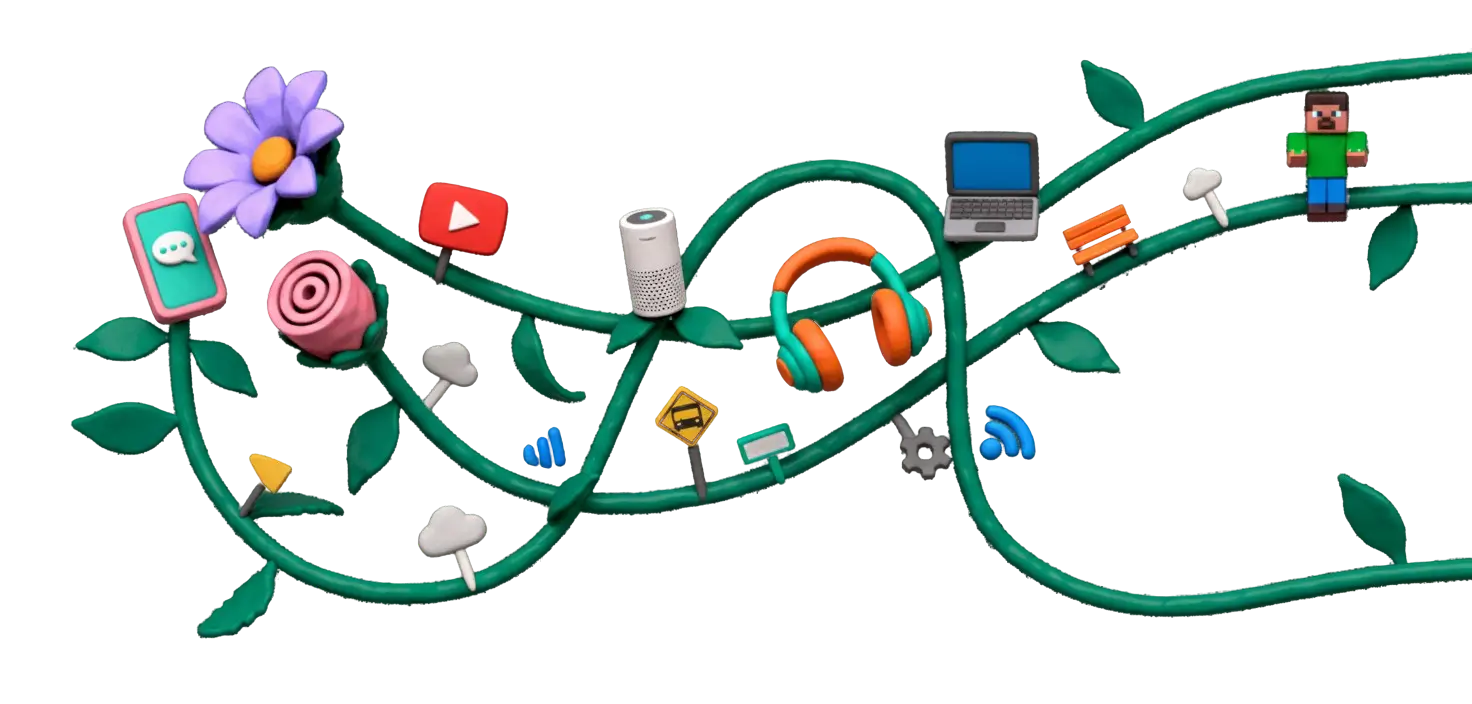
Roblox — the intentional parent's guide (2025)
Roblox is a platform of millions of user-made games. Kids can create,play, and socialize. The real risk isn't the games—it's the unmoderated social layer.
The video game industry is larger than film and music combined — and far more diverse.
But for many families, "video games" have become shorthand for Minecraft or Roblox, which are not traditional games.
They're platforms — places where users make and share experiences, often with social media-like incentives.
They're fun and expressive but operate like social networks, not traditional games with clear goals.
Roblox is more like YouTube or TikTok — endless, user-generated, and algorithm-driven — than like traditional games.
Is Roblox taking over?
Learn how to redirect your child's energy toward other developmentally positive games and experiences.
Get Your Personalized Roblox Plan
Answer one quick question to get insights tailored to your family
Does your child already play Roblox?
Community Benchmarks: Roblox by Grade
% of children by grade level in your community
*Screenwise 2025 U.S. baselines (modeled).
Platform Overview
Parent Reviews
"Depends entirely on account settings"
"Great for friends, risky with strangers"
"Some kids learn game design"
Quick Facts
What Roblox actually is
It's a platform, not a game
Roblox contains millions of user-created "experiences" (games). Kids can play pet simulators, obstacle courses, role-play worlds, horror games, tycoon games, and more — all within one app.
Three modes of engagement
Playing
Exploring different user-made games and experiences
Creating
Some kids use Roblox Studio to make their own games
Socializing
Chatting, hanging out, and showing off with friends
The core tension
Roblox can be genuinely creative and social. But it's also designed to maximize time-on-platform and Robux spending. The experience your child has depends almost entirely on: (1) Which games they play, (2) Who they interact with, (3) What account restrictions you've set.
The honest truth (from parents with older teens)
The moderation isn't enough
Roblox has chat filters and reporting tools, but they're reactive, not proactive. Inappropriate content, scams, and predatory behavior slip through constantly. The platform is too big to moderate effectively.
Robux creates real pressure
Many games are designed around Robux spending—pay-to-win mechanics, limited-time items, and social pressure to buy premium accessories. Kids feel left out if they can't afford the "cool" items.
The trading ecosystem is a mess
In games like Adopt Me! and Pet Simulator, kids trade virtual items that have real-world value. This creates scams, gambling-like behavior, and emotional attachment to digital possessions.
Account restrictions are your best tool
Roblox has robust parental controls—IF you set them up. Restrict chat, friend requests, and game access. Enable a parental PIN so your child can't undo your settings.
Red / Yellow / Green flags (30-second scan)
Green
Account restrictions enabled, chat limited to friends or disabled, Robux spending set with limits, games reviewed together.
Yellow
"Can I play with this person I met online?" "Can I get more Robux?" Playing daily for 2+ hours without breaks.
Red
Secret friend lists, unauthorized spending, exposure to inappropriate content, emotional distress over virtual items or social drama, mentions of meeting online friends IRL.
If-this-then-that (choose your lane)
Want safe, supervised play?
Yes to Account Restrictions, friends-only chat or chat disabled, parent-approved games only; review settings monthly.
Kid wants to play with school friends?
Yes to friends-only chat; help them add friends you know IRL; set Robux budget ($5-10/month max).
They're asking for more Robux constantly?
Under 10 or not ready for social risks?
Ready to take control of your family's digital wellness?
Get personalized insights, community benchmarks, and expert guidance tailored to your family's unique needs.